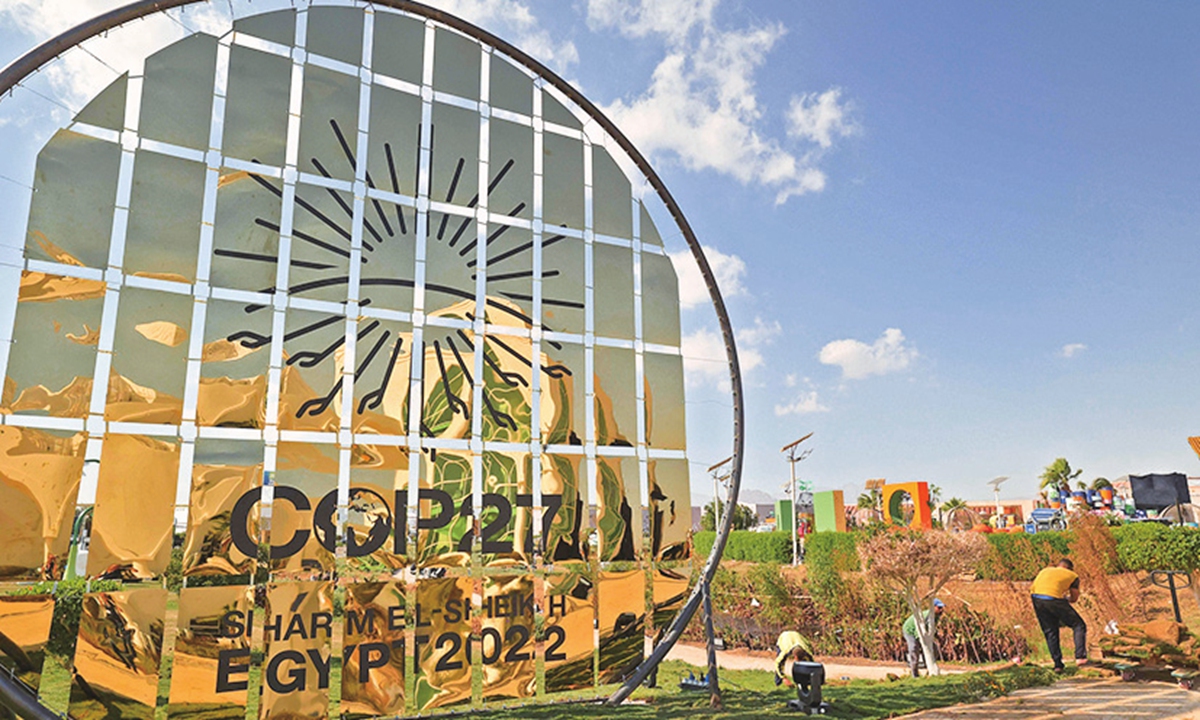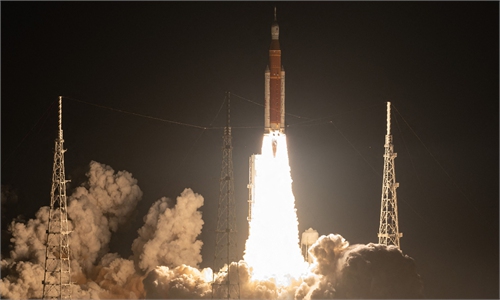Big sci-tech events to watch for in 2023
Explorations in space, physics and ecological protection in focus

Visitors watch a rocket launch on the big screen at the China Space Museum in Beijing on November 16, 2022. Photo: VCG
A number of important sci-tech events deserve a place on the calendar of 2023.
The exploration of the Moon will become a hot topic, with various deep space projects on the agenda. Many large scientific facilities will soon be put into operation to help basic research, while a CRISPR gene-editing therapy might be delivered to patients.
Highlights in space exploration
In 2023, countries will continue to carry on the momentum of space exploration, with the Moon being a priority.
Russia plans to launch its Luna-25 moon probe in 2023, whose main tasks include testing soft landing technologies and conducting contact studies of the lunar south pole.
Chandrayaan-3, India's third lunar exploration mission, is scheduled to be launched this year after several delays. The country aims to put a lander and rover in the highlands near the south pole of the Moon.
US space agency NASA's small satellite Lunar Flashlight will soon enter into orbit around the Moon. It will use near-infrared lasers and an onboard spectrometer to map ice in permanently shadowed regions near the Moon's south pole.
More space observatories are expected to be deployed this year.
The Japan Aerospace Exploration Agency has developed the X-ray Imaging and Spectroscopy Mission (XRISM), which is scheduled to launch into orbit around the Earth in 2023. XRISM will perform the high-resolution X-ray spectroscopic observations of the hot gas plasma wind that blows through the galaxies in the universe.
China will also maintain a high density of launches this year. China Aerospace Science and Technology Corp, the nation's leading space contractor, said it will arrange over 50 launches in 2023. Other space enterprises plan to launch about 10 flights. In addition to the rocket launches, the country will continue with the research and development of the Tianwen 2 asteroid probe and the Chang'e 7 lunar probe.
New physics breakthroughs
In recent years, advances in physics have become increasingly dependent on big scientific devices. This year, a number of big science installations will be put to use, promising to propel new discoveries in physics.
The US Linac Coherent Light Source (LCLS) is the world's first hard X-ray free-electron laser. The upgraded LCLS-II will provide a major jump in capability - moving from 120 pulses per second to 1 million pulses per second, which will enable researchers to perform experiments in a wide range of fields that are now impossible.
The installation of the underground neutrino observatory in Jiangmen, South China's Guangdong Province, is scheduled to be completed at the end of 2023. One of its goals is to determine the neutrino mass hierarchy.

The logo of COP27 climate summit held in Sharm El-Sheikh, Egypt Photo: VCG
Ecological conservation depends on implementation
The frequent occurrence of natural disasters and extreme weather in 2022 further highlights the necessity of harmonious coexistence between man and nature.
The 14th Meeting of the Conference of the Contracting Parties to the Ramsar Convention on Wetlands, the 27th session of the Conference of the Parties (COP27) to the United Nations Framework Convention on Climate Change, the 15th meeting of the Conference of the Parties (COP15) to the UN Convention on Biological Diversity were held in the last two months of 2022.
As a highlight of COP27, the conference finally agreed to establish a "loss and damage" fund to provide financial assistance to the most vulnerable and hardest hit by climate change.
Participants in COP27 also agreed to establish a "transitional committee" to make recommendations on how to operationalize both the new funding arrangements and the fund at COP28. The first meeting of the "transitional committee" is expected to take place before the end of March 2023.
Under the leadership of China, a UN biodiversity deal, entitled Kunming-Montreal Global Biodiversity Framework and aimed at reversing biodiversity loss and setting the world on path of recovery, was adopted at COP15. The deal includes four goals and 23 targets for achievement by 2030.
China will actively guide the implementation of the goals and targets in the framework, and ensure that relevant decisions are fully implemented, said Huang Runqiu, COP15 president and China's minister of ecology and environment.
Xinhua



